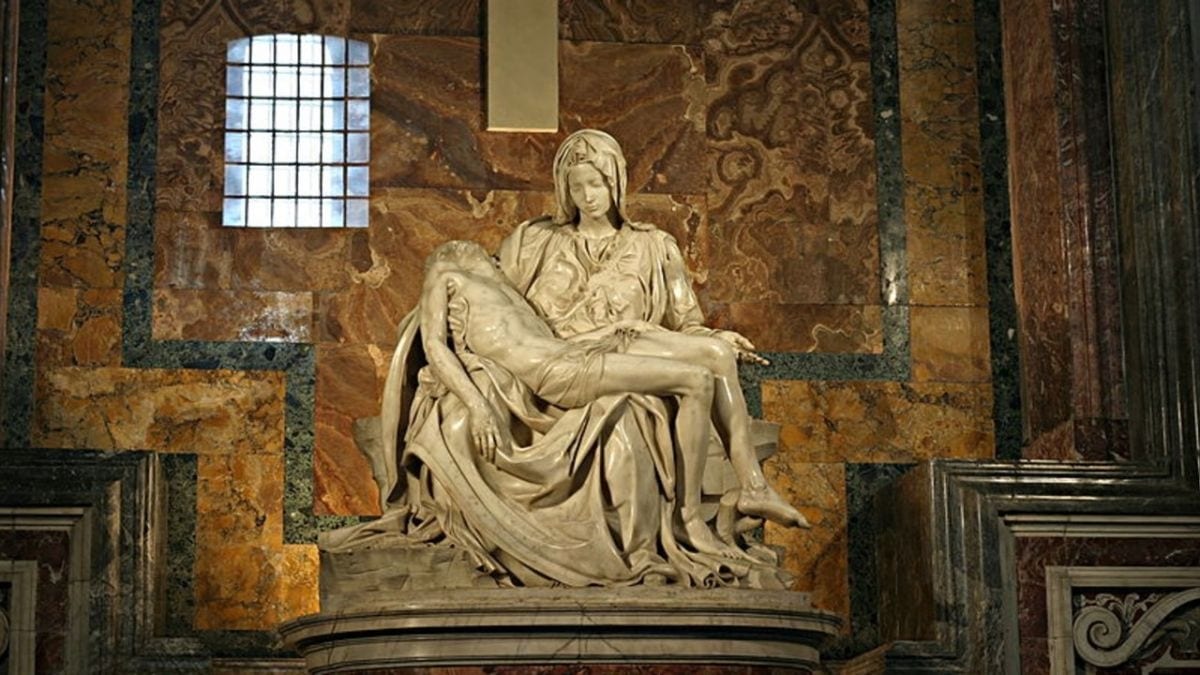Romans 11:1-5 God’s Remnant

Paul is in the middle of proving that God’s historical purpose toward the Jewish nation has not failed. To prove it he unfolds the seven main arguments found in chapters 9-11. At the start of chapter 11, the point to which we have come in our verse by verse exposition of Romans, we are at Paul’s fourth argument. Question: “I ask then: Did God reject His people?” Answer: “By no means! I am an Israelite myself, a descendant of Abraham, from the tribe of Benjamin” (v.1). Here Paul is using his own case as proof that Israel has not been abandoned. As long as there is only one believing Jew – though, in fact there are many – no one can affirm that God has rejected Israel utterly. Paul is a remnant himself, whether or not there are any others. But, in fact there are and always have been others.
Here are several points of application we can take from verse one: (1) We should not be discouraged in our evangelism, because all whom God is calling to faith in Jesus Christ will come to Him. If anyone should have been discouraged in his evangelism, it should have been Paul in his attempts to reach the Jewish people. He was God’s chosen messenger to the Gentiles (Acts 9:15), but Paul always began his missionary efforts with the Jews and again and again he was rejected by them. (2) We should be warned against presumption. It is true that all whom God is calling to faith will be saved, but this does not mean that all of any race, social class, or denomination will be. Being a Jew did not in itself save these people, though there were great advantages to Judaism, as Paul acknowledges. Neither will membership in a Christian denomination save you, though there are also advantages to belonging to a good church. We must not presume on our affiliations. (3) We should put all our confidence in God, who alone is the source, effector, and sustainer of His people’s salvation. How foolish to put your confidence in anything else, or even in a combination of lesser things. If a person can be a Jew, with all the spiritual blessings attending to that great religious heritage, and yet be lost, certainly you are foolish to trust in your ancestry, nationality, education, good works, or (strange as it may seem) your good intentions. Salvation comes from the Lord; it comes from God alone. Make sure you are trusting Him and what He has done for you in Jesus Christ.
In Romans 11:2-5, the apostle touches on a great Old Testament story as support for his contention that God has not abandoned Israel and that the Word of God has not failed. It is the story of Elijah, following his victory over the prophets of Baal on Mount Carmel (1 Kings 18:16-19:18). This account begins the fifth of Paul’s arguments in Romans 9-11 in which he proves that the purposes of God for Israel have not failed and are in fact continuing.
The new idea in this argument is the “remnant.” This word refers to a small surviving part of something, either an object or a custom or a people. In the Old Testament the word refers in most cases to a small company of Jews who survived or were to survive the invasions, destructions, and captivities inflicted on them by the Assyrians and Babylonians in the sixth and eighth centuries B.C.
So, to whom is Paul referring when he speaks of “his people, whom he foreknew”? There is no question that Paul has been proving God’s faithfulness to his people by referring to an elect remnant. Since God has elected some Jews, though as remnant, to be saved along with the believing Gentiles, it’s clear that Israel as a nation has not been cast off. The “his people” in verse 1 and “his people, whom he foreknew” in verse 2 refer to the same people, and this people must be the nation as a whole. This is the direction in which the chapter is moving.
The application of these truths in regard to Israel is what the rest of Romans 11 contains. We will be following it out in detail as we make our way through chapter 11. But there are two applications for us today: (1) God always has a remnant, and the remnant is often much larger than we might suspect. I think of many Christians who are working in difficult places or under difficult circumstances – in inner city mission, for example. They have worked hard; there have been meager results. What they have done may have been misunderstood and rejected, perhaps even violently. They might be inclined to give up, thinking, “Lord, they have killed your prophets and torn down your alters; I am the only one left, and they are trying to kill me” (v. 3). If you are thinking or feeling that way, you need to know that God still has his seven thousand who have not bowed down to Baal, that you are therefore not alone and that your work will not be without results.
(2) The Remnant of those who are God’s people have not bowed to Baal. Baal was a particularly corrupt god of the ancient Canaanites whose worship consisted of blatant sex worship, coupled with pure materialism. Sound familiar? We have the same thing today. Our western culture, particularly in America, is charging down the twin freeways of sexual promiscuity and blatant materialism. But God has His remnant. There are devout people, who are living for God and trying to do the right thing, often in what are terrible circumstances. We should be encouraged to know this, seeking out such persons and encouraging them whenever we can. That is what the church is to be, after all – the company of those who are living for God and are encouraging one another to live for Him even in this present evil world.
So let us get on with it. “Let us fix our eyes on Jesus” and so run the race set out for us (Heb. 12:1-2), whatever it may be. Moreover, let us run it, knowing that one day, like ourselves, all God’s elect people will stand before Him having conquered this present wicked world. And though we will generally have been despised and persecuted, we will know that God has accomplished His perfect will in us and that nothing we have done for Jesus will have been done in vain.
Romans 11:1-5 Reflection Questions:
Once again Paul raises the question of whether God has abandoned Israel and perhaps broken His promise to them. In verses 1-6 Paul uses the story of Elijah (from 1 Kings 18-19). How are Paul and Elijah similar?
The idea of a “remnant,” a few people, who remain after a great disaster, comes from the heart of the Old Testament, from Isaiah 10:20-23 where the prophet describes those who will return after the punishment of exile. Who is the remnant Paul has in mind?
What are some major sidetracks and pitfalls that keep people from discovering Jesus Today? How can we expose the futility of following these paths?



